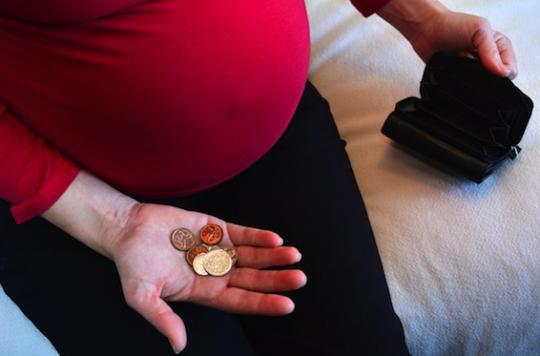Seine-Saint-Denis is the French department with the highest infant mortality. Two new reports shed new light on the causes of this excess mortality.

While infant mortality is steadily declining in France, the reality is quite different in Seine-Saint-Denis. In this department, infant mortality has been 40 to 50% higher than the metropolitan average since the 2000s.
Insecurity has often been pointed out to explain this situation. But it does not explain everything. Mothers’ inadequate care pathway, failure to monitor risk factors and the occurrence of complications are also responsible, according to two reports from Inserm and theParis Samusocial Observatory submitted on October 20 to the Regional Health Agency (ARS) of Ile-de-France.
To carry out its audit, Inserm studied the medical files of 227 stillbirths or children who died during the neonatal period (from birth to 28th day of life) in 2014. Through the intermediary of interviewing midwives, the researchers were able to collect information on the progress of pregnancy and childbirth, the causes of death and the socio-demographic characteristics of the mother. They also spoke with 75 bereaved mothers.
Difficult social situations
According to this audit, “neonatal mortality is characterized by a high proportion of very premature births”, of which nearly a third are linked to vascular pathologies. In addition, half of the mothers were overweight or obese, risk factors that deserve special attention both for the health of the mother and that of the unborn child. However, the care pathway for these women is very often unsuitable, in particular for women suffering from diabetes or hypertension.
The study also sheds light on the link between difficult situations and infant mortality. It notes that 7% of women did not have social security at the start of pregnancy and barely more were beneficiaries of AME or of the emergency care access system. Family breakdowns or violence are also reported in 23% of cases.
Worn out and destitute caregivers
And according to the Observatory of the Samu social de Paris, these difficulties are not sufficiently heard and taken into account by the healthcare teams. “All the women we followed have witnessed serious difficulties in orientation in the care system, throughout their pregnancy,” says the first lines of the report. And to continue: “The women interviewed report that they did not always understand the procedures to follow or the documents to present, and” each time they struggle to find the right interlocutor “.
Future mothers then turn to nurses, secretaries or even doctors themselves, who are not always able to answer their questions. Health professionals also point to the lack of time and high work rates “not very conducive to dealing with the social difficulties of patients”.
“But the problems are not simply medical, annoys Dr. Gilles Lazimi, general practitioner at the municipal health center of Romainville (Seine-Saint-Denis). If we want to improve perinatal mortality and the care of precarious pregnant women, we must provide ourselves with the means that they have adequate housing, that they have the means to eat healthily and that we have social workers who can support these women ”.
Gilles Lazimi, general practitioner at the municipal health center of Romainville (Seine-Saint-Denis): ” If we do not allow these pregnant women to have immediate full social care but instead we put them in a situation of being in a difficult care path, we will not be able to better follow these women. “
New measures expected
The main lines of thought presented by these two reports therefore relate to improving the early prevention of risk factors, the need to provide better information to women and help in understanding the medical recommendations issued and the organization of the treatment. health system. Based on these proposals, the ARS will organize three workshops bringing together professionals and actors in perinatal care in Seine-Saint-Denis from November 2015 to March 2016. At the end of these workshops, new concrete measures will enrich the program. ‘actions already undertaken by Agency regional project aimed at Reducing Infant and Perinatal Mortality (RéMI).
But for Dr Gilles Lazimi, this will not be enough to respond to these complex situations if politicians and decision-makers are absent from the discussions. The medical professional must not and cannot be the only actor in matters of precariousness. Social relays are essential.
.

















